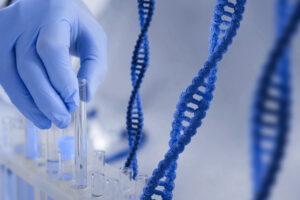Whole grains, fruits and vegetables as well as healthy fats (such as avocados) have all been shown to promote fertility. Fruits and berries in particular contain natural antioxidant compounds and anti-inflammatory phytonutrients which improve egg and sperm quality.
Proteins are also key when trying to get pregnant quickly. Quinoa and beans contain protein, zinc, folate and polyamine putrescine which all can aid ovulation stimulation.
Eat More Complex Carbohydrates
Carbs can either help or hinder fertility depending on both quantity and quality. Refined carbohydrates like white bread, cookies and soda are broken down rapidly into sugars within your body, leading to an insulin surge which disrupts normal ovulation. Low glycemic load carbs tend to digest more slowly resulting in less fluctuation of blood sugar.
Consuming a diet rich in complex carbs like brown rice, whole grain pasta and bread, sweet potatoes, beans and lentils as well as vegetables and fruits will help enhance fertility. (2) Additionally, remember not to completely avoid carbohydrates for energy purposes – they provide essential fuel to both you and your baby! (2)
Avoid Processed Foods
Avoiding processed foods may seem obvious, but it’s particularly crucial when trying to conceive. Numerous studies have linked a diet high in ultra-refined carbohydrates and added sugars with reduced fertility for both women and men.
Consuming more whole grains, legumes, fruits, vegetables, nuts and seeds can increase your fertility. Furthermore, opting for full fat dairy such as yogurt or milk instead of high-fat varieties could further bolster fertility.
Fatty fish such as salmon, sardines and herring contain omega-3 fatty acids that may boost fertility. Consume more of these fertility-promoting foods while including lean beef (try Grilled Flank Steak or Ginger Beef Stir Fry for optimal zinc supplementation), which plays an essential role in both egg and sperm production.
Eat More Dark Leafy Greens
Folate (vitamin B9) is an essential nutrient for fertility. You can find folate in dark leafy greens such as turnip and spinach, as well as in dark-leafed vegetables like romaine lettuce, asparagus, broccoli florets, Brussels sprouts and beans.
Folic acid helps lower the risk of certain birth defects, including spina bifida. To increase your folate intake, increase consumption of dark leafy greens as well as breakfast cereals with fortified folate and orange juice.
Salmon is a rich source of omega-3 fatty acids and lycopene, both essential components to helping reduce oxidative stress and balance reproductive hormones. You can also get these healthy fats by adding extra virgin olive oil to salad dressings or snacking on avocados, nuts, or seeds; eggs also offer choline which boosts fertility in women.
Eat More Omega-3 Fatty Acids
Omega-3 fatty acids (EPA and DHA) can boost fertility for both men and women alike, as this type of fat plays an essential role in creating hormones necessary for conception. Fish is an excellent source of these vital omega-3s; flax seeds, walnuts and quinoa also contain them in abundance.
Limiting trans fat consumption is also crucial for fertility. One study showed that eating too many foods high in trans fats increased ovulatory infertility risks by 31%.
Studies have demonstrated that women taking omega-3 supplements during their menstrual cycle were 1.5 times more likely to get pregnant than those not doing so. For optimal health and fertility outcomes, it is best to get this essential nutrient from food sources instead – Mediterranean Diet provides plenty of omega-3.
Eat More Healthy Fats
Studies show that diet can have an influence on fertility; specifically certain foods. Protein-rich whole foods, healthy fats and fruits and vegetables are among the best dietary choices to increase chances of pregnancy.
Add liver to your diet regularly as it is an excellent source of iron (important in preventing miscarriage and anemia) and folate. Enjoy it grilled, in meatloaf or shepherd’s pie form, or even combine it with onions and tomatoes to create delicious liver onion soup!
Add almonds and Brazil nuts to your diet for healthy fats and folic acid. Sunflower seeds can also provide your body with much-needed nourishment; simply enjoy them straight up or make sunflower seed butter to experience their delights!
Eat More Fruits and Vegetables
Vegetables provide essential vitamins and minerals, such as folate, vitamin C and magnesium, in addition to being an excellent source of fiber. Try including more vegetables like arugula, kale, spinach and collard greens into your diet for maximum nutrition!
Eating plenty of fruits and veggies is one way to help balance hormones if you are having difficulties becoming pregnant, such as PCOS. Also, limiting refined carbs is vital since these raise insulin levels which could impede with ovulation.
Strive for a balanced diet rich in proteins, healthy fats and plenty of vegetables and fruits. Salmon is an ideal fertility food as it’s high in omega-3 fatty acids but low in mercury; eggs also offer protein and choline; nuts are full of folic acid as well as healthy fats – these all can aid fertility!
Eat More Seeds and Nuts
Add more seeds and nuts to your diet in order to increase fertility, such as avocados which provide vitamin K, potassium and folate; almonds offer vitamin E, zinc and L-arginine; while whole grains such as quinoa provide protein, folate and other vital vitamins essential for a healthy pregnancy.
Studies have demonstrated the benefits of eating more plant proteins rather than animal proteins when it comes to fertility. Also avoid sugary snacks and drinks as these contain concentrated doses of sugar that can disrupt hormone balance, making conceiving harder than it needs to be.
Liver is a delicious source of choline, omega-3 fatty acids and folate, making it an excellent addition to a variety of meat-based dishes such as beef stew or meatloaf. Tomatoes offer yet another nutritious punch with their abundance of the antioxidant lycopene which has been linked with higher fertility for both women and men.





